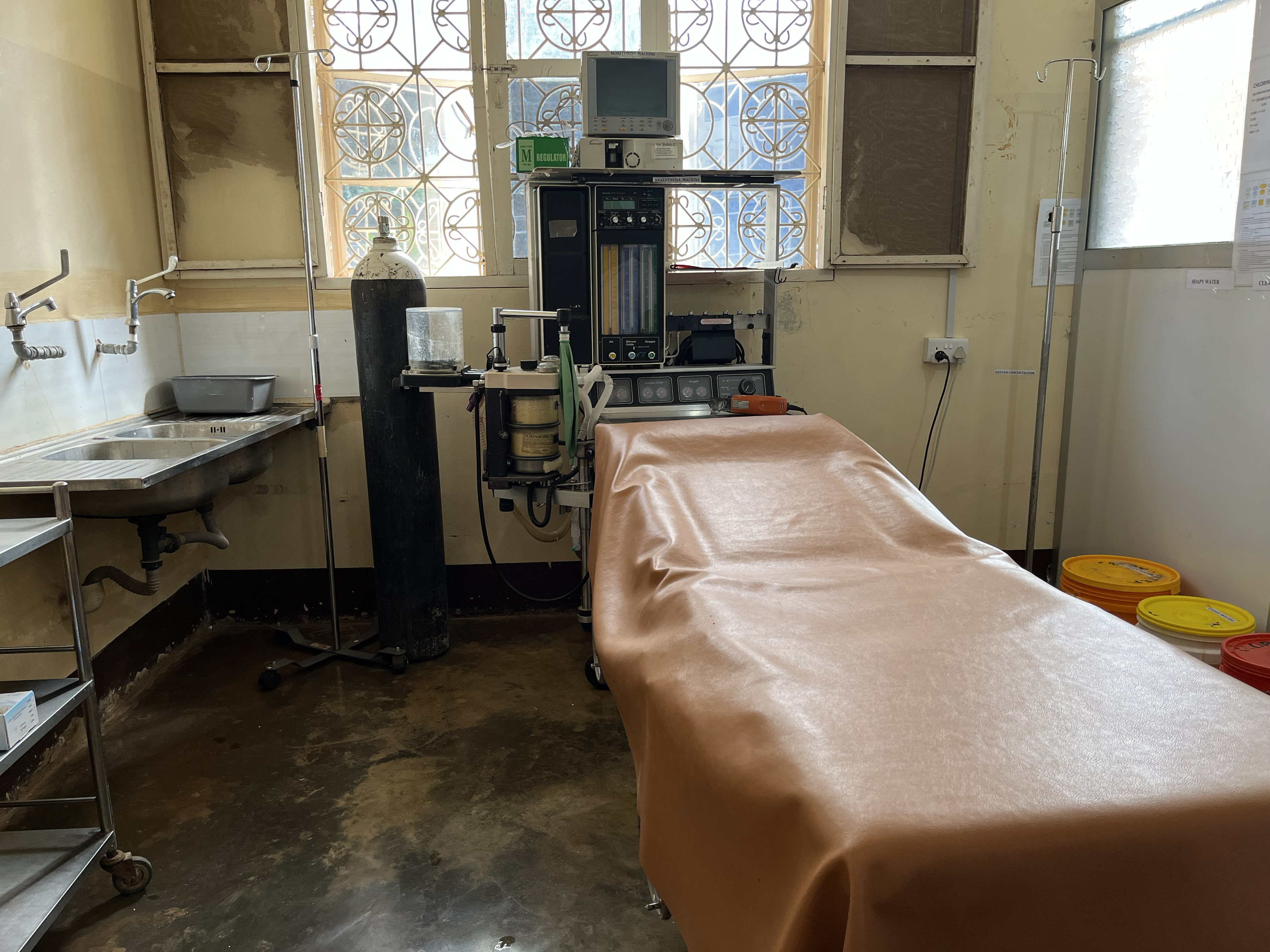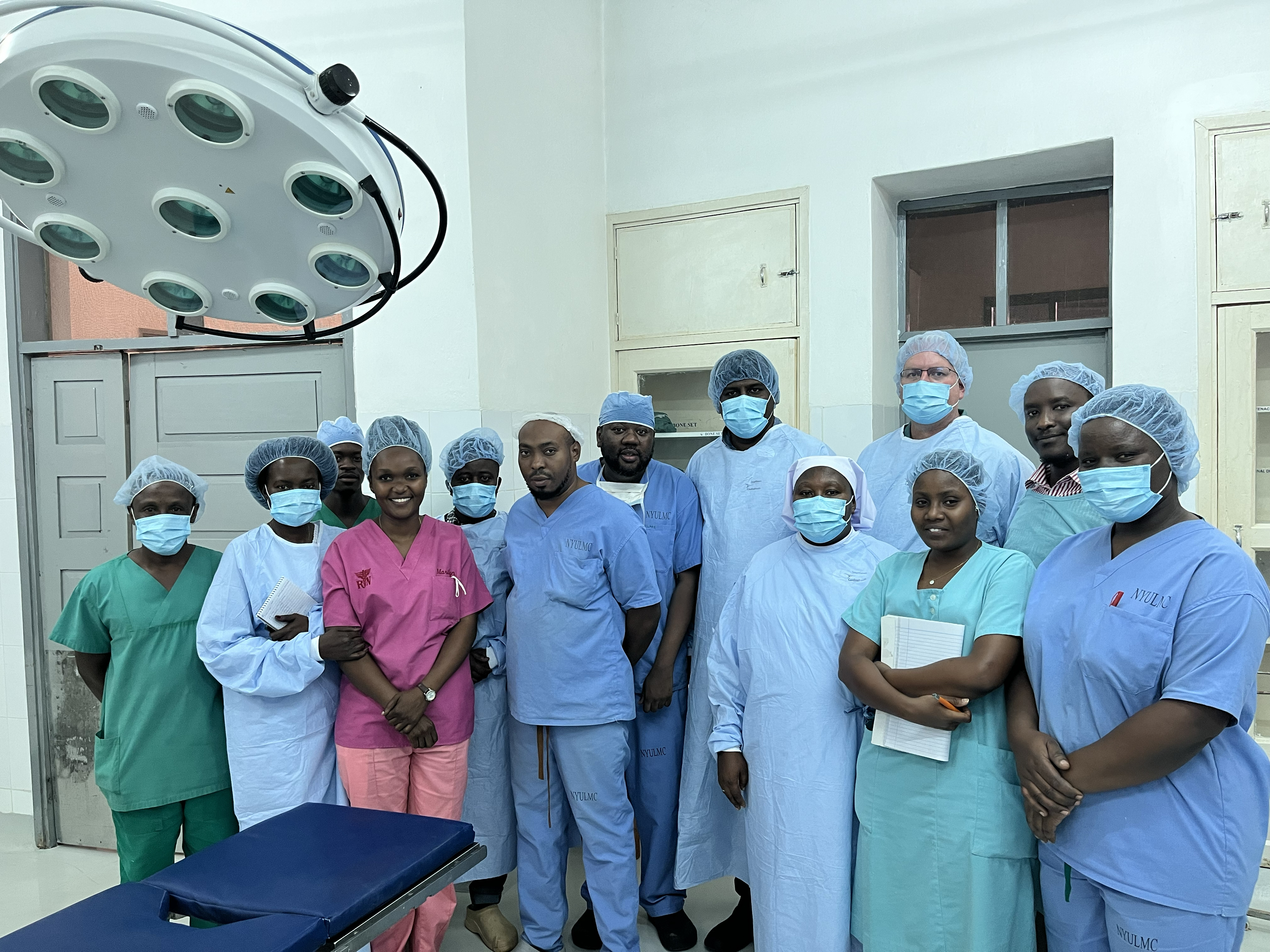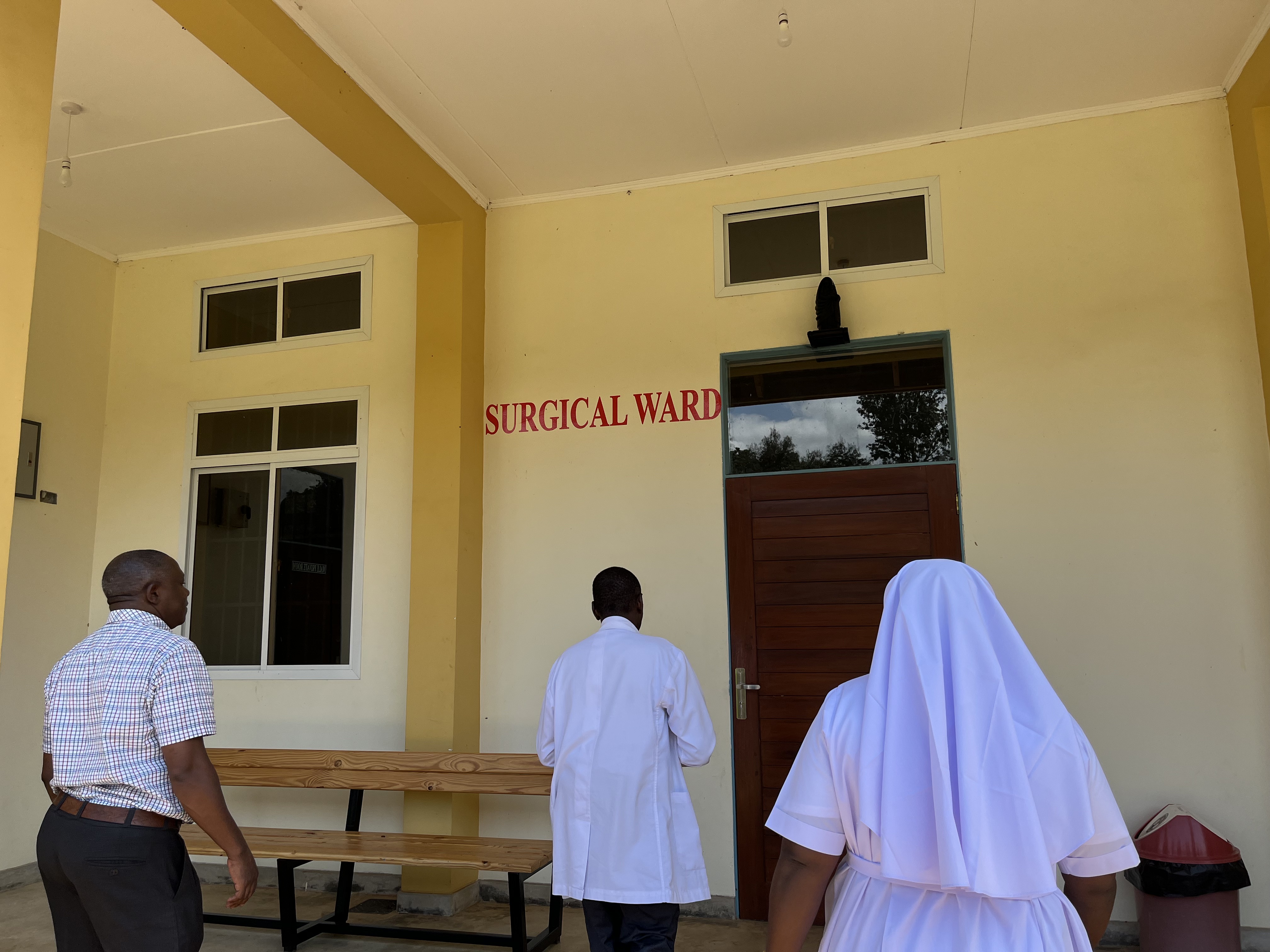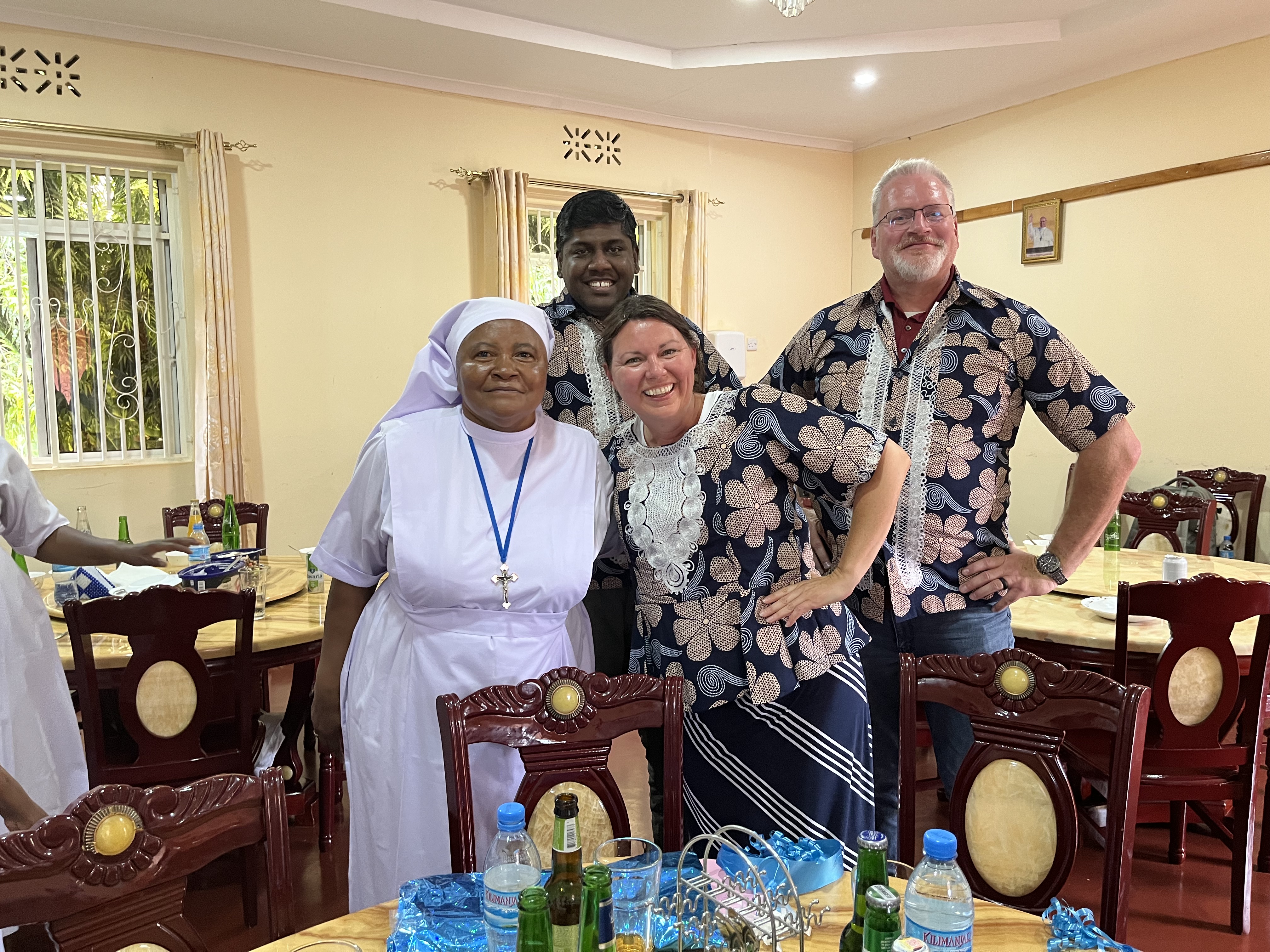Welcome to Kilimanjaro, Tanzania!
August 17, 2023
We arrived in Moshi, Tanzania – Kilimanjaro – yesterday (Wednesday) afternoon. It had been 46 hours since our travel began in St. Louis, with a huge debacle that resulted in an unexpected overnight layover in Addis Ababa, Ethiopia. Ratish, Darin and I made it through customs with 300 hikers only to discover the luggage belonging to Ratish and Darin wasn’t there.
Immediately, though, our fortunes changed when we met our driver for the week, Raspicious Baitwa and two Sisters from the order of Our Lady of Kilimanjaro, the sponsors of St. Joseph Hospital. They greeted us as old friends, with bottles of water and roses. We then were transported to our lovely hotel and had lunch with the Sisters, including Sister Hellen, who is the CEO of St. Joseph. She’s also a medical doctor and has a master’s degree in public health. In short, she’s your typical superstar African Sister.
What I expected
This morning we rose early – not having slept particularly well as we’re adjusting to an eight-hour time difference and all-night speakers next door – to tour the hospital. I expected the same type of hospital I have seen every time I’ve been invited to tour a hospital in an African country. Patients and families sitting on the “waiting area,” which is outside on the grass in the sun for hours. Open windows in surgical areas and packed wards. Antiquated buildings that lack even the basics that Americans expect, such as hospital beds, air conditioning and patient monitors. Handwritten, worn signs on the walls of pediatric wards that list malaria, dysentery and malnutrition as the top causes of death in children and infants.
I know that not all hospitals in African countries are like this, yet those that are more “Western” tend to be exclusive for the minority who have ample financial resources. Too many African people who are not rich, especially mothers, infants and young people, are dying too soon simply because they do not have access to health resources considered basic in other parts of the world. Mission Outreach is trying to address that inequity through the responsible distribution of medical supplies and equipment, and I believe we are a part of a solution. Still … when you tour these hospitals that care for poorer populations, the problems can feel as insurmountable as Mount Kilimanjaro.
New perspective
St. Joseph Hospital was different though, and I don’t think I will ever see things the same. The future of Mission Outreach – and I would argue global health equity – depends on our willingness to invest in the St. Joseph Hospitals around the world and the local people who run them. And, something I already knew was reinforced: if you want something impossible to happen, just put a community of Catholic Sisters in charge. They can, and will, do anything through the sheer forces of competence, determination and love.
St. Joseph is a sophisticated, emerging health system. Founded in 1998 by Mother Cecilia, the 150-bed hospital treats 15-20 inpatients and 200-400 outpatients every day. They do that with a staff of five full-time physicians, three part-time physicians and 46 nurses – and a support staff comprised entirely of local people. Led by Sister Hellen and Janeth Itemba (whose U.S. corresponding title would be the chief operating officer), they have 20 departments, including a surgical center and dialysis ward. They have IT support from a local software developer, electronic medical records, security cameras and supply chain software.
A growing hospital
The only service line they lack is an ICU, and while they do have a few critical care beds they don’t have the technology they need for ICU-level care. We had the honor to speak with most of their clinical department heads, each exuding competence, dedication and vision. We saw huddle boards on the walls that articulate goals for patient outcomes, quality measures, and SOPs for key processes. These leaders are exceptional, and it shows. The only thing they said they lack is the medical equipment necessary to elevate their levels of care. As we talked, though, Sister Hellen said they have a few other worries: staffing issues, funding sources (particularly government reimbursement rates and regulations) and rising operational costs due to supply chain issues.
Their care for each other, their patients and their community – and their immense vision for St. Joseph’s – made it obvious that they are a partner Mission Outreach will be working with, and learning from, for a long time.
Touring their hospital filled me with energy about the future of Mission Outreach. In each room we entered, Ratish ran to the equipment and Darin to the supply cabinet. What a blessing to me to work with two guys who have been wearing the same clothes for 72 hours and STILL do their jobs with that much enthusiasm. Although the problems are big at St. Joseph – and in health care, whose aren’t? – each person we met had ideas for solutions. They just needed resources. And by the grace of God and through our medical supply and equipment donors, we have resources to share.
Meeting the Sisters
After the hospital we went for a lunch party that rivaled any I’ve been to in my life, at the Motherhouse of the Sisters of Our Lady of Kilimanjaro. It started with one of the most amazing welcome songs I could imagine.
The twenty Sisters and the three of us said good-bye for at least 10 minutes, and it was clear that none of us wanted to separate. I told them, laughing and serious, that although we had only known them for an hour, I would miss them terribly. And you know what? As they sang a gentle travel blessing while we pulled out of their driveway, I did.
The blessings of travel
We ended the day at the gorgeous home of the St. Joseph Hospital board of directors’ chairman, Francis Mushi. He and his family offered us (more!) food and drink, and the conversation lasted until 9 p.m. They are a Catholic family, with the boundless joy and hospitality that is a national trait of Tanzanians. We shared deep insights about our world views, global economics and history. We also laughed together as though we had known each other for years. Our host prayed for our safety and health and thanked us profusely for being their guests.
As our visit was ending, Mr. Mushi observed that while travel has its sufferings, the blessings it gives are a gift of immeasurable value. I looked around the table – at my colleagues, at Sister Hellen, and at our new friends, and felt gratitude to be exactly where I was at that exact moment. Yes, I thought, for all the challenges of travel, this is why we do it and it is a gift. And I think Darin and Ratish probably feel the same way – or at least they will as soon as their luggage arrives.
Asante sana,
Erica



